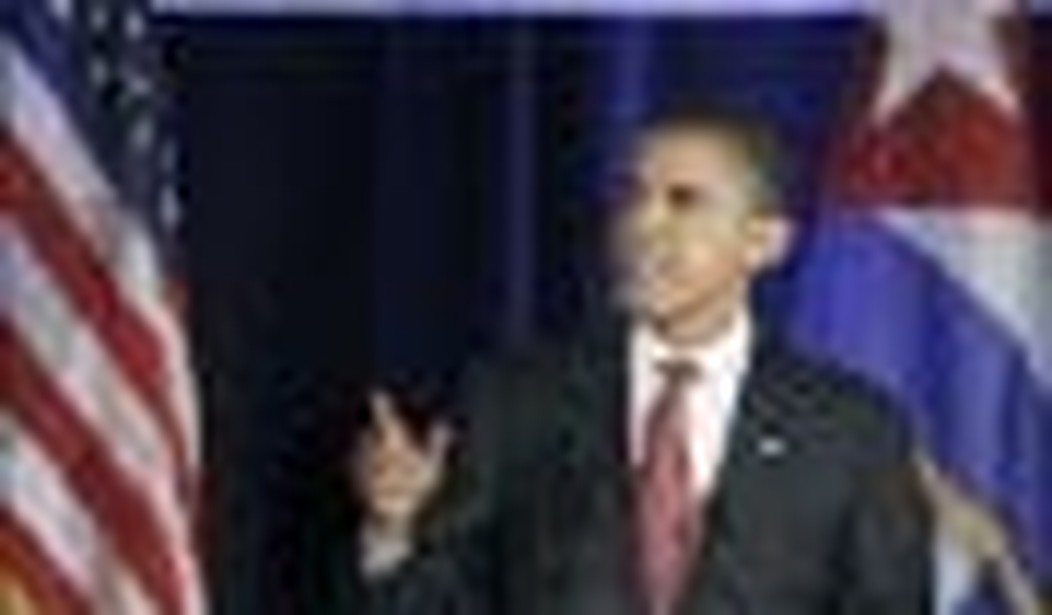Barack Obama was elected president on a platform of change, but one thing he promised to keep largely the same was U.S. policy toward Cuba. This position is itself a change from Obama’s previous stance on the issue.
In January 2004, Illinois State Senator Barack Obama told an audience at Southern Illinois University, “I think it’s time for us to end the embargo with Cuba. … It’s time for us to acknowledge that that particular policy has failed.”
Yet in August 2007, U.S. senator and presidential candidate Barack Obama told another audience in Miami’s Little Havana that he would not lift the embargo but rather take a more nuanced approach that includes lifting restrictions on travel to the island for Cuban-Americans and limits on remittances to Cuba.
Candidate Obama repeated the pledge at a Cuban Independence Day luncheon hosted by the once-powerful Cuban American National Foundation in May of this year. At the luncheon, Obama chided “typical” politicians who come to Miami: “They talk tough, they go back to Washington, and nothing changes in Cuba.” He then stated that his policies would be guided by “libertad” (liberty) for the Cuban people.
If one is to believe Obama, his change of heart came because he realized that the embargo “is an important inducement for change,” but a cynic might see his conversion as an easy play for Cuban-American votes.
The truth is that if it was a play, it didn’t work very well. Preliminary exit poll data that has been released suggests that Obama only obtained a McGovernesque 35% of the Cuban vote and I have examined actual precinct-level election results that suggest that he obtained less than 30%. Regardless of which number you believe, it’s obvious that Cubans, for the most part, did not support Obama and his plan to unilaterally thaw relations between Washington and Cuba, and they certainly didn’t put him over the top in Florida.
Additionally, the three Cuban-American Republican incumbent representatives won reelection, two of them quite easily. The signal sent by Cuban-Americans is that they prefer the current hard line to any policy that would give the Castro regime legitimacy and more importantly cash with which it can continue to repress Cubans on the island, especially with a moribund Fidel Castro and a weakened regime leadership under his brother Raul.
Already the American left is agitating and pushing Obama to go back on his pledge to Cuban-Americans. At the Huffington Post, an anti-embargo activist agreed that Cubans didn’t buy the kinder, gentler approach to Cuba but also believes that this fact gives Obama license to flip back to the position he held before he flopped.
Cynthia Tucker, the editorial page editor of the Atlanta Journal-Constitution, similarly urged Obama to work with Congress to engineer the lifting of the embargo in her appearance Sunday on ABC’s This Week. She actually used the disingenuous term “blockade,” which is oft repeated by the Castro brothers and their lackeys in the official Cuban press, demonstrating where Ms. Tucker gets her news and opinions.
A “blockade” would imply that the U.S. controls what goes in and out of Cuba, but the truth is that Cuba trades with — and owes money to — virtually every other country in the world. Even under the embargo, the U.S. is Cuba’s largest food supplier. Agricultural products and medicines are exempted from the embargo with the key condition that they are paid for with cash.
Really, the U.S. embargo on Cuba has been severely weakened over the years. But it does three key things that make it worthwhile:
First, it prevents U.S. corporations from becoming minority partners with the regime the way other foreign companies have. The Castro regime does not allow majority foreign ownership and dictates to the minority partners the terms under which business is conducted. For example, employees are provided by the regime and the foreign partner must pay the regime the going rate for such employees. But then the Castro brothers pay the workers whatever they want, pocketing the difference.
Second, it keeps U.S. tourists from legally frolicking on the beaches of a totalitarian state and otherwise being a source of revenue that the regime uses to fund the repressive apparatus and spend on arms.
Third, it prevents Cuba from receiving credit from U.S. firms and banks. Cuba has proven to be one of the world’s worst credit risks because the Castros don’t believe in capitalism and thus the regulations that govern it (i.e., repayment of debts).
Current U.S. law does not permit lifting of the embargo until certain conditions exist in Cuba such as the freedom of Cuba’s internationally recognized political prisoners and the legalization of political opposition to Cuba’s ruling communist party.
One could argue the merits of the embargo for days on end — Lord knows that I have — but one cannot argue what Barack Obama’s position on it was while he was running for president. As president he will be under extreme pressure from his own party to lift the embargo completely or dismantle it piece by piece. Time will tell if he is a man of his word, though we have some indication that he isn’t by his broken pledge to accept federal funding for his campaign and thus the spending limits associated with them.
If Obama reneges on this pledge to maintain the bulk of the embargo not related to family travel and remittances, he will be the latest in a long line of Democratic presidents to stab Cuban exiles in the back and allow the Castro regime to get over on them, further reinforcing Cuban-American identification with the Republican Party. More importantly, the president that was elected on a platform of change will have proved that he’s just one more politician that says one thing and does another. Not exactly a big change.









Join the conversation as a VIP Member